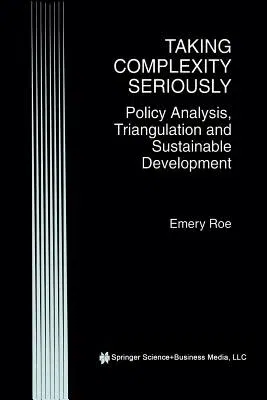Taking Complexity Seriously applies the advanced policy analysis
technique of triangulation to what is now the world's most complex
public policy challenge: sustainable development.
One central problem of public policy analysis has been to find new ways
of analyzing issues of increasing complexity and uncertainty.
Triangulation is perhaps the best example of these novel techniques, as
it uses various methods, databases, theories, and approaches to converge
on what to do about the complex issue in question.
Taking Complexity Seriously uses four different theoretical approaches
(Girardian economics, cultural theory, critical theory, and the local
justice framework) to triangulation in order to converge on answers to
four major policy questions:
These four approaches are used to analyze the sustainable development
controversy that recently arose in the pages of Science magazine and
the journal Ecological Applications. These different approaches prove
highly potent in defamiliarizing conventional wisdom about sustainable
development. Ultimately the different approaches will converge on novel
answers to the four questions. The practical implications of these
conclusions are drawn out at the end of Taking Complexity Seriously
in a detailed case study of ecosystem management.


